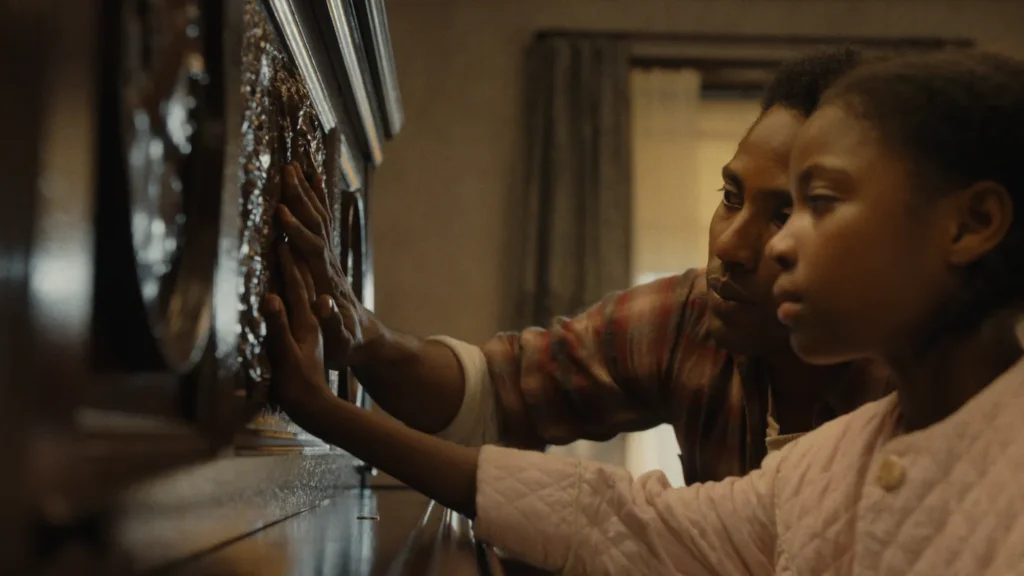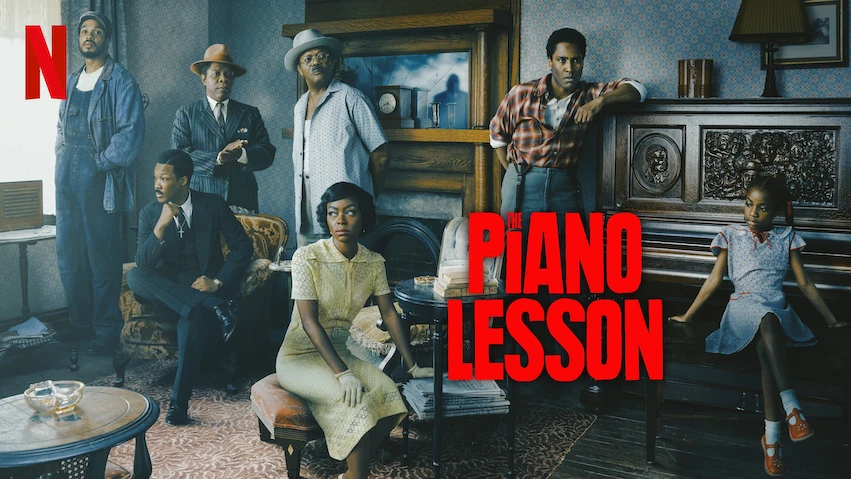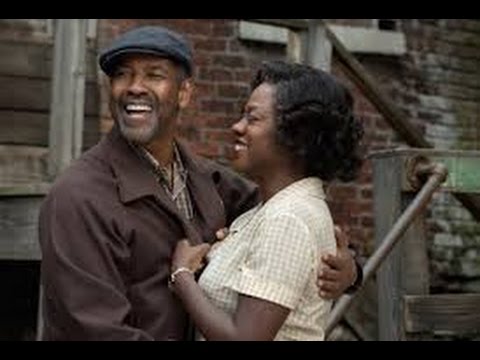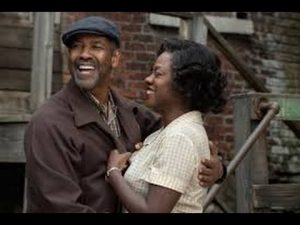The Piano Lesson
Posted on November 19, 2024 at 1:47 pm
B +| Lowest Recommended Age: | High School |
| MPAA Rating: | Rated PG-13 for strong language, violent content, some suggestive references and smoking |
| Profanity: | Strong language including many uses of the n-word |
| Alcohol/ Drugs: | Alcohol |
| Violence/ Scariness: | Tense emotional confrontations, recollections of enslavement and abuse, supernatural horror |
| Diversity Issues: | A theme of the movie, disabled character |
| Date Released to Theaters: | November 22, 2024 |

August Wilson wrote a play for each of the decades of the 20th century, all set in Pittsburgh and all exploring themes of race, family, and generational trauma. Denzel Washington, who starred in “Fences” on Broadway and directed and starred in the 2106 film that featured Viola Davis in her Oscar-winning role and produced “Ma Rainey’s Black Bottom,” also starring Davis, who nominated for an Oscar, along with her co-star, Chadwick Boseman. This third in the series is a family story on screen and behind the camera, produced by Washington, directed by his son Malcolm Washington (who adapted the screenplay with Virgil Williams), starring his other son, John David Washington (“BlackkKlansman”), and his wife Pauletta and daughter Olivia in small roles.
The lesson here is not about someone learning how to play the piano. It is the struggle between Charles family siblings who represent two polar opposite views on history, heritage, and obligation. John David Washington and Danielle Deadwyler give sizzling performances as Boy Willie and Berniece (her name possibly a reference to a character in The Member of the Wedding).
Boy Willie, described by Wilson as “brash and impulsive, talkative and somewhat crude in speech and manner,” arrives at the Pittsburgh home shared by Berniece, her young daughter, and their Uncle Doaker (Samuel L. Jackson). He is uninvited, unannounced, unexpected, and unwanted. He and his friend Lymon (Ray Fisher) have driven a truck filled with watermelons from their rural community in Mississippi. Boy Willie’s plan is to sell the watermelons to get the money to buy property. It is more than a chance to be his own boss. The property was once owned by the Sutter family that enslaved his ancestors. The Sutter patriarch has just died by falling into his well.
The Sutter family also once owned a piano they got in exchange for slaves, separating a mother and child of the Charles family from the husband and father, a gifted carpenter, who was considered too valuable to sell. He carved his family’s history into the piano, and a later generation stole it from the Sutters. Now it is in the living room of Berniece’s home. The conflict in the play is between Berniece, who does not play the piano but refuses to sell it because of what it represents about the pain, skill, courage of her family. Boy Willie is determined to sell it so he can build a future which in his mind also honors the family history. If stealing the piano was a triumph over enslavement and abuse, owning the Sutter property is even more so.
Washington is a mesmerizing performer and his Boy Willie is electric, charismatic, and dangerous. Deadwyler has a quieter role, especially in the first half of the film, but gets a chance to show Berniece’s fiery determination. Wilson, always a master of creating arresting, complex characters, has two of his best in the two siblings. A conventional story would have the widowed Berniece find a happy ending with the preacher who loves her (Cory Hawkins, excellent as always). But Wilson’s plays grab onto big, existential issues and he did not hesitate to go to extremes to demonstrate the intensity of his characters’ struggles. When does your family history support you? When does it weigh you down? What do you do when the answer is both?
Parents should know that this film has strong language, including many uses of the n-word. Characters drink and smoke. There are references to the sad death of a husband and father and to the abuses and deprivations of enslavement and bigotry. The story also includes some supernatural/horror events with disturbing images.
Family discussion: Who is right, Berniece or Boy Willie? What could they have said to better explain why they felt so strongly? Does your family have a cherished heirloom and who cares the most about it?
If you like this, try: “Fences” and “Ma Rainey’s Black Bottom”



